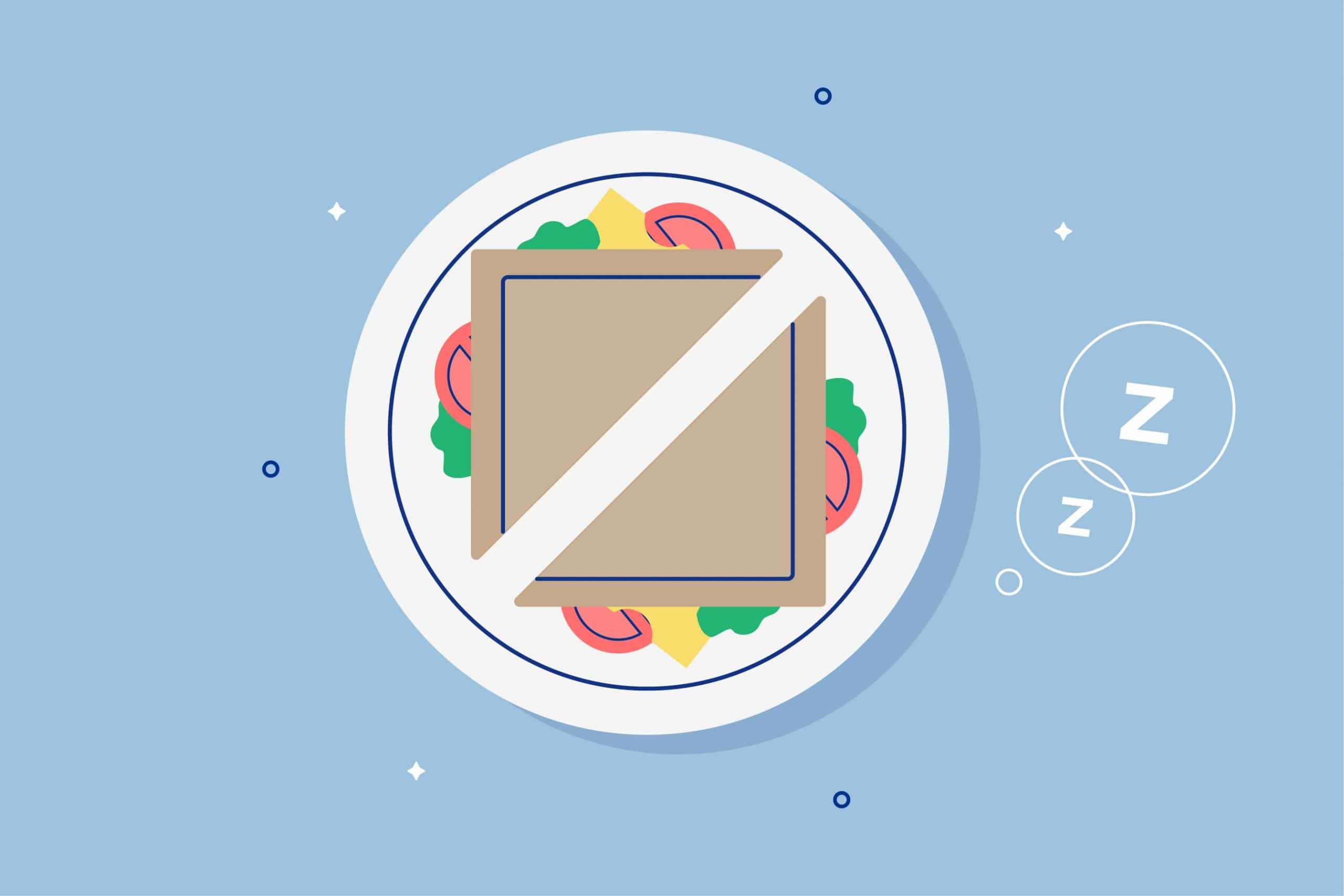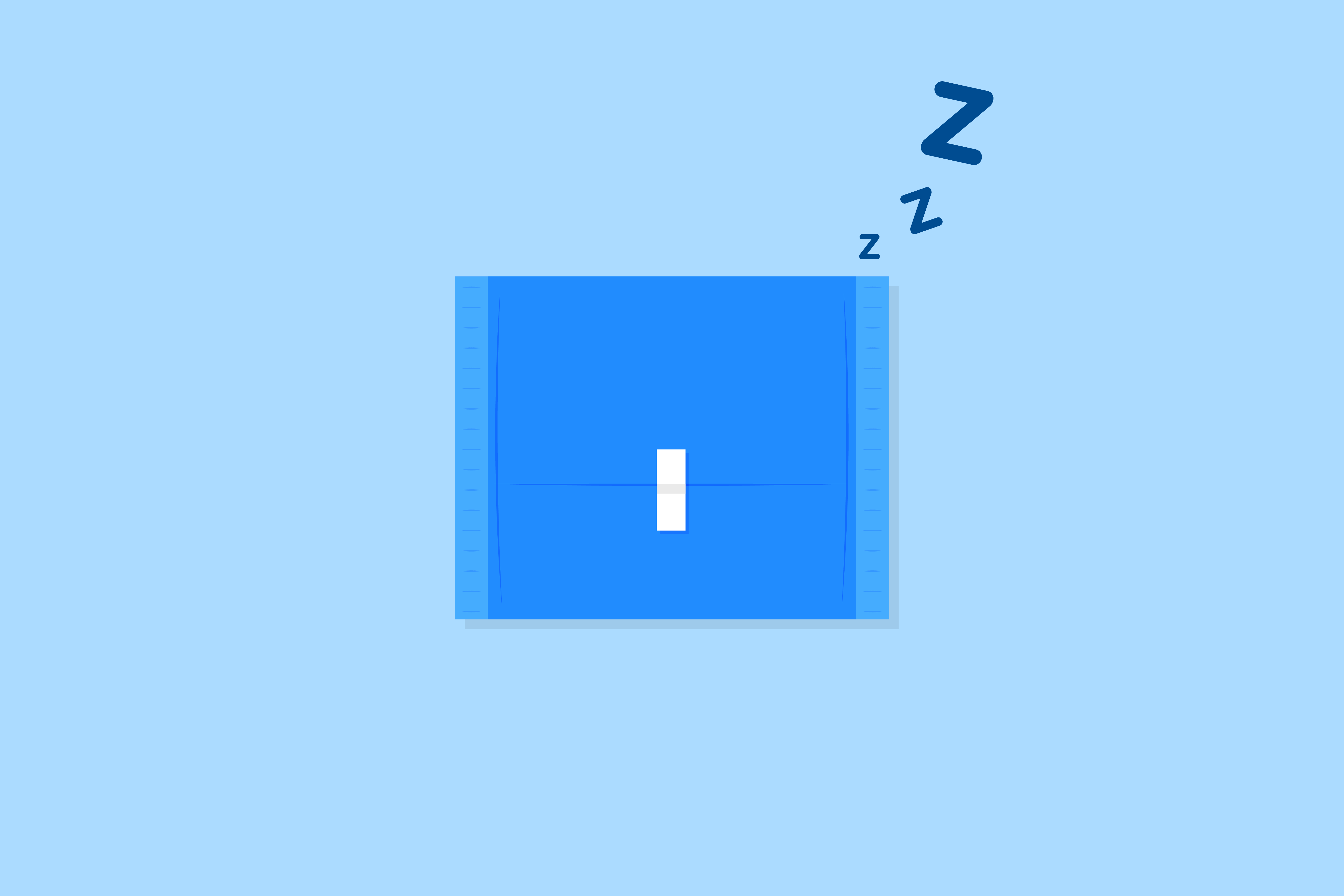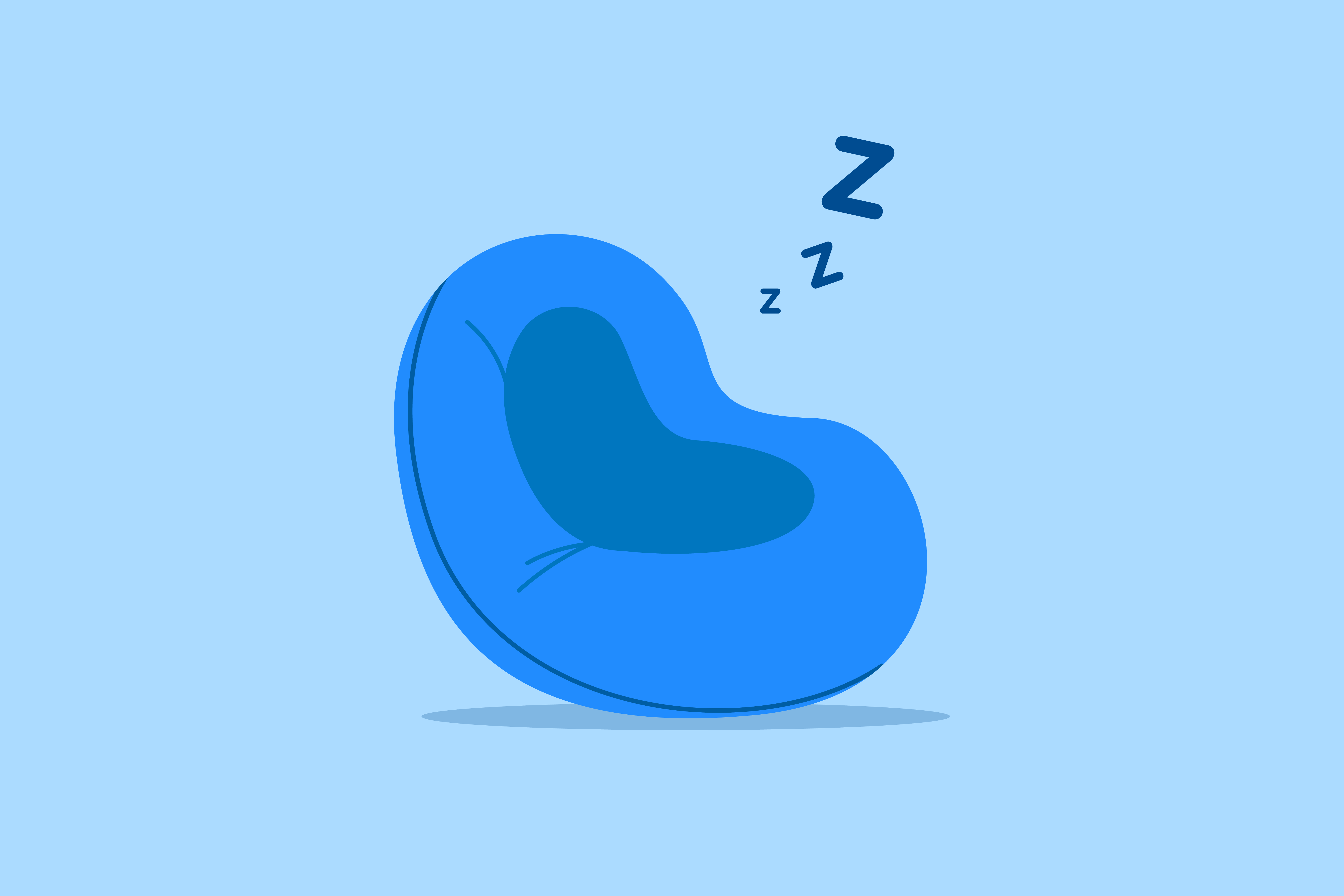Key Takeaways
- Post-Meal Sleepiness Causes: Post-meal sleepiness, or post-prandial somnolence, is a normal occurrence and can be attributed to factors like meal composition (high-carb or high-fat meals), excessive calorie intake, and meal timing. Certain nutrients like tryptophan, melatonin, and phytonutrients can also induce drowsiness.
- Underlying Health Conditions: Conditions like diabetes, food intolerances or allergies, sleep apnea, anemia, and underactive thyroid can contribute to post-meal drowsiness. These conditions can disrupt metabolism and normal bodily functions, leading to fatigue after eating.
- Strategies to Combat Post-Meal Sleepiness: Strategies to combat post-meal sleepiness include eating a balanced meal of nutrient-dense foods and ensuring proper hydration. Another tip is to be sure you practice proper sleep hygiene and get plenty of natural light.
Feeling sleepy after eating, commonly called post-prandial somnolence, Verified Source National Library of Medicine (NIH) World’s largest medical library, making biomedical data and information more accessible. View source is prevalent. It can occur following lunch or after consuming a large holiday meal. While post-meal fatigue is normal, its interference with daily functioning may suggest an underlying medical condition.
Several factors contribute to this sleepiness, including how nutrition affects your sleep cycle like the consumption of high-carbohydrate or high-fat meals, excessive calorie intake in one sitting, and the timing of meals. Certain nutrients like tryptophan, melatonin, and phytonutrients can also induce drowsiness.
The Science Behind Post-Meal Fatigue
The phenomenon of post-meal fatigue can be attributed to the release of certain hormones during digestion, such as serotonin and melatonin, which induce drowsiness. This can result in feelings of tiredness and a decrease in energy levels after consuming a meal.
Post-meal fatigue is a normal occurrence many individuals experience. Certain foods, particularly those high in carbohydrates or fat, are more likely to make you sleepy or feel tired after eating.
High glycemic index foods, in which blood sugar rises followed by a sharp drop, can contribute to post-meal fatigue. Fluctuating blood sugar levels robs sleep time leading to feelings of tiredness and decreased energy levels after eating big meals. Additionally, consuming large meals can contribute to post-meal fatigue as the body expends more energy to digest a bigger meal.
Food intolerance or allergies may also play a role in post-meal fatigue. Undiagnosed food intolerances, such as gluten sensitivity, Verified Source National Library of Medicine (NIH) World’s largest medical library, making biomedical data and information more accessible. View source can trigger allergic reactions and limit the body and digestive system’s ability to fuel itself, resulting in feelings of tiredness.
To minimize post-meal fatigue and maintain optimal energy levels throughout the day through physical health and sleep, consuming balanced meals that include protein, carbohydrates, other foods with low glycemic index values, and healthy fats is recommended. Avoiding excessive consumption of high glycemic index foods and practicing portion control can help regulate blood sugar levels and prevent energy crashes.
Foods That Trigger Sleepiness After Eating
Foods high in tryptophan, such as chicken, fish, and milk, can induce sleepiness. It is a normal occurrence after lunch or after consuming a large holiday meal (Sometimes jokingly referred to as a food coma).
It is important for individuals experiencing post-meal sleepiness to pay attention to their dietary habits and make adjustments accordingly. Opting for smaller portions throughout the day instead of two big meals or three large meals can help prevent excessive fatigue.
The benefits of a good diet that include protein, carbohydrates, and healthy fats can provide sustained energy levels. Additionally, staying hydrated by drinking water regularly throughout the day can improve alertness and combat drowsiness.
Individuals who consistently feel tired after eating should consider consulting with a healthcare professional to rule out any underlying medical conditions that may be contributing to their symptoms.
“Certain foods can trigger sleepiness after eating due to their impact on blood sugar levels and digestion, says Brittany Ford, RHN. “High-glycemic carbohydrates, large meals, and high-fat foods are common culprits. For instance, a study in Nutrients discusses the effects of high-glycemic foods on post-meal fatigue, while research in the American Journal of Clinical Nutrition investigates the effects of dietary fat on postprandial sleepiness. “
“Foods rich in tryptophan, like turkey, can also contribute to post-meal drowsiness.”
Underlying Health Conditions and Post-Meal Sleepiness
Underlying health conditions such as a diabetes & sleep correlation, food intolerances or allergies, sleep apnea, anemia, and underactive thyroid can contribute to post-meal drowsiness. These conditions can affect the body’s metabolism and disrupt normal bodily functions, leading to feelings of fatigue after eating. Here are three ways in which these underlying medical conditions can influence post-meal sleepiness:
- Insulin Spikes: Getting a good night’s sleep is important for diabetics, the body either does not produce enough insulin or cannot use the insulin it produces effectively. This can result in high blood sugar levels after a meal, leading to a rapid drop in blood sugar levels and subsequent fatigue.
- Disruptions to Circadian Rhythms: Do you have sleep apnea? It is characterized by interrupted breathing during sleep. It can lead to poor quality sleep and daytime sleepiness. The disrupted sleep patterns associated with this condition can contribute to post-prandial somnolence.
- Nutrient Deficiencies: Conditions such as anemia and underactive thyroid can cause nutrient deficiencies that affect energy and cognitive performance. Anemia results in reduced red blood cell production and oxygen delivery to cells, while an underactive thyroid leads to decreased metabolism and overall energy production.
To mitigate the impact of these underlying medical conditions on post-meal exhaustion, individuals need to manage their conditions through proper medical treatment and lifestyle adjustments. This may include following a well-balanced diet considering any dietary restrictions related to food intolerances or allergies. Additionally, light is essential for great sleep and regular exercise have been shown to improve circadian rhythms and promote wakefulness throughout the day.
Strategies to Combat Post-Meal Sleepiness
Implementing effective strategies can help reduce post-meal sleepiness and improve overall energy. One approach is to focus on eating for better sleep during lunchtime. A balanced meal with essential amino acids, healthy fats, and carbohydrates can sustain energy throughout the day. Including foods such as fatty fish, which are rich in omega-3 fatty acids, can also help regulate insulin levels and prevent blood sugar crashes that contribute to post-meal fatigue.
Incorporating bright light into the daily routine can also be beneficial in combating post-meal sleepiness. For example, there are scientifically proven benefits of morning sunlight or bright indoor lighting after lunch can help reset circadian rhythms and increase alertness. Go for a brisk walk after a meal to aid in digestion and get some sun.
For individuals with underlying medical conditions contributing to post-meal sleepiness, consulting with a healthcare professional for appropriate management strategies is crucial. Managing conditions such as diabetes, food intolerances or allergies, sleep apnea, anemia, and underactive thyroid through proper treatment plans may alleviate symptoms of excessive daytime sleepiness after meals.
The Relationship Between Sleep Habits and Post-Meal Tiredness
Various factors can influence the relationship between sleep habits and post-meal exhaustion. Understanding these factors can help individuals make informed choices to prevent or alleviate post-meal fatigue. Sleep, nutrition, and light are important considerations.
Good Night’s Sleep
Getting sufficient and high-quality sleep is crucial in managing energy throughout the day. Lack of sleep can lead to daytime drowsiness, making individuals more susceptible to feeling tired after eating. Prioritizing healthy sleep and a consistent sleep schedule and creating a conducive sleep environment are essential for promoting optimal rest.
Nutrient Intake and Blood Sugar
Consuming foods that provide sustained energy is vital in preventing post-meal fatigue. Including protein-rich foods from high-quality sources, such as lean meats, fish, eggs, legumes, and nut butter, can help maintain steady sugar levels and promote wakefulness. Avoiding excessive consumption of saturated fats found in baked goods, butter, cheese, and deep-fried foods is also recommended based on peer-reviewed studies. Verified Source National Library of Medicine (NIH) World’s largest medical library, making biomedical data and information more accessible. View source
Light Exposure
Exposure to natural light or bright indoor lighting during the day has been shown to impact circadian rhythms and increase alertness positively. Seeking light exposure after meals can counteract the potential slump associated with post-meal tiredness.
It is important to note that individual experiences may vary, and consulting a healthcare provider is always recommended for personalized advice based on specific needs or underlying medical conditions. By prioritizing good sleep hygiene practices, choosing nutrient-dense foods from high-quality sources, and integrating light exposure into daily routines following meals, individuals can take proactive steps towards minimizing post-meal exhaustion for improved overall well-being and safety.
“Light exposure influences sleepiness by regulating circadian rhythms and melatonin production,” says Ford. “Morning exposure to natural light promotes wakefulness (Khalsa et al., 2003), while artificial light, especially blue light from screens and ereaders, can suppress melatonin production and disrupt sleep. Nighttime light exposure may also lead to sleep disturbances.”
Get a Good Night’s Sleep
Prioritizing consistent and sufficient sleep is essential for managing energy levels throughout the day and reducing the likelihood of experiencing post-meal tiredness. Adequate sleep helps regulate various physiological processes, including the circadian rhythm, Verified Source National Library of Medicine (NIH) World’s largest medical library, making biomedical data and information more accessible. View source which controls periods of wakefulness and sleep.
Additionally, getting enough sleep at night ensures that our sleep drive, which is influenced by adenosine Verified Source National Library of Medicine (NIH) World’s largest medical library, making biomedical data and information more accessible. View source buildup in the brain, is properly regulated. When well-rested, our body’s need for sleep decreases during the day. On the other hand, insufficient nighttime sleep can lead to an increased sleep drive and make it more difficult to stay awake after meals.
Furthermore, maintaining a regular sleep schedule is important for optimizing energy throughout the day. Going to bed and waking up consistently helps regulate our internal clock and improves overall sleep quality. Avoiding large meals close to bedtime can also prevent post-meal exhaustion from interfering with nighttime sleep.
Frequently Asked Questions
How do I stop feeling sleepy after eating?
Changing your eating habits can help you stop feeling tired after a meal. Try eating smaller, more nutrient-dense meals more often in the day rather than fewer large meals.
Another is to get better sleep at night. If well-rested, you are less likely to feel tired during the day. Finally, after eating, take a brief walk, take a quick nap, or both.
Do diabetics feel tired after eating?
If you have diabetes, hypoglycemia, or hyperglycemia, which occur when blood sugar levels fall too low or rise too high, respectively, could lead you to fall asleep. A significant factor in why persons with diabetes may nod off after eating is insulin sensitivity. Overall, diabetes can have a significant impact on sleep quality which is why it’s important to manage your diet well if you have it.
Should I sleep after lunch?
After lunch, a little period of relaxation can aid in better digestion. Your body becomes more relaxed as you sleep. All of your energy is then directed at digesting your food and absorbing the nutrients that will be distributed throughout your body.
Is it bad to go to bed on a full stomach?
According to experts, after eating, wait at least three hours Verified Source Cleveland Clinic Ranked #2 hospital by U.S. News & World Report and one of the largest academic medical centers in America. The Cleveland Clinic serves patients from all over the world. View source before going to bed. To avoid having an upset stomach, indigestion, or acid reflux at night, this gives your body time to digest your food and aids in maintaining sleep. However, ensure you eat all meals at a proper time to abide by this regulation.
Conclusion
Post-meal exhaustion, also known as post-prandial somnolence, is a common phenomenon that can be attributed to various factors such as certain foods, meal composition, calorie intake, and timing of meals.
While post-meal fatigue is normal, it may indicate an underlying medical condition if it interferes with daily life. Strategies to reduce this sleepiness include:
- Consuming well-balanced meals
- Getting enough nighttime sleep
- Seeking sunlight exposure after eating lunch
- Regular exercise
- Taking short naps
Understanding the science behind post-meal fatigue can help individuals manage their energy levels effectively.
About the author
Eric Ridenour is a health and wellness writer with a strong focus on sleep and nutrition. With a background in health science and psychology, Eric has a deep understanding of the connection between sleep and overall well-being. His expertise has been sought by various businesses and individuals, and his work has been featured in reputable publications such as Thrive Global, Drug Report, and Authority Magazine. Eric's commitment to promoting better sleep and comprehensive wellness is evident in his writing and consultations. He is a published author working on his second book.
View all posts





